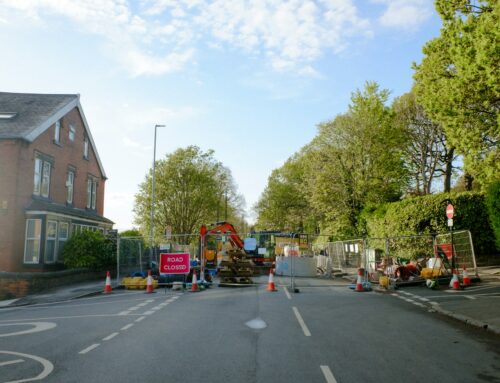Earlier in September, the UK Transport Select Committee published ministers’ response to the report it had published during the summer on Managing the impact of street works.
To the Committee’s dismay, the Government rejected the majority of the report’s recommendations, which had sought to minimise the disruptions caused to road users by utility firms’ frequently lengthy and repeated street works.
The term “street works” refers to instances of utility companies digging up roads for the purposes of installing or repairing pipes and cables for gas, water, electricity, and broadband. This distinguishes the term from “roadworks”, which means the maintenance of roads and the filling of potholes.
What were some of the UK Government’s responses to the Committee’s proposals?
Here is a selection of responses by the Department for Transport (DfT) to recommendations the Committee had made in its publication:
- Lane rental schemes
The Committee had urged ministers to support a greater number of local authorities to set up lane rental schemes, by permitting all relevant authorities to do so without the need for Secretary of State approval.
However, the DfT rejected this, suggesting a potential risk of local authorities bringing in “poorly targeted schemes”.
- Extending the guarantee period for reinstatement
Utility firms are already responsible for the quality of the road surfaces they have reinstated for two years following the completion of street works. The Committee recommended an extension of this guarantee period to five years.
However, ministers said they wanted to see how a similar change to the reinstatement period (to six years) would play out in Scotland.
- Deadlines for tackling defects
Members of Parliament (MPs) had suggested the Government should introduce timescales for companies to fix defective reinstatement work. The Committee also proposed that fines should go up each time a deadline is not met.
The Government stated in response that it would discuss these recommendations with the Highways Authorities and Utilities Committee, a mediation body which represents both the local authorities and utilities companies undertaking such works.
- Tighter requirements for the use of immediate permits
Immediate and urgent permits give companies the ability to dig up roads with little or no notice given to the local authority. It is intended that these permits are used in situations such as a burst water main causing localised flooding.
In response to concerns it had received about heightened misuse of these permits, the Committee urged the DfT to consult on a new definition to prevent this.
Responding, the Government said it had investigated the issue of firms misusing immediate permits, but it claimed not to have found any evidence of such misuse so far. However, it did say it committed to updating the Co-ordination Code of Practice to clarify when immediate permits should be used.
- A Street Works Commissioner
The Committee had recommended that the DfT consider setting up a Street Works Commissioner in England, similar to Scotland’s Road Works Commissioner, to help make sure legislation was interpreted and applied in a consistent way.
Such a Commissioner, the MPs said, would also provide an option for the independent resolution of disputes between councils and companies.
However, the DfT argued in response that the establishment of a new arms-length body would not be consistent with ministers’ ongoing review of such bodies, which actually sought to reduce their number.
The Government “risks making itself look unwilling to stand up to utility companies”
Chair of the Transport Committee, Ruth Cadbury MP, commented that ministers’ “rejection of all the major recommendations in our report risks making itself simply look unwilling to stand up to utility companies, on behalf of frustrated road users who have to endure unreasonable and often repeated street works delays.”
She continued: “If the incentives are not changed, we carry on without carrots or sticks, then why should the Government expect anything to change?”
The Chartered Institution of Highways and Transportation (CIHT) has also weighed in on the Government’s responses to the Committee’s report, urging ministers to “reconsider” their stance “as we believe that many of the recommendations are viable.”
Our transport professionals stand ready to support your projects
Are you seeking out transport consultants that you can trust to provide the highest standards of advice and guidance, thereby assisting the success of your projects?
If so, please contact your nearest Transport Planning Associates (TPA) office directly today.





